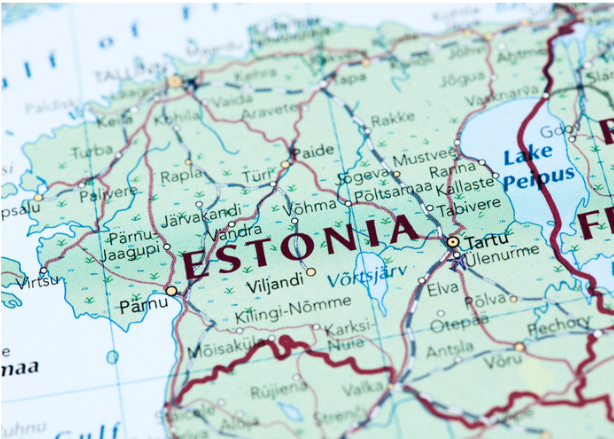Estonia has launched a new immigration policy to bring in skilled workers from other countries. The policy tackles major labor shortages in several industries. The government wants to boost the economy by making it easier for qualified professionals to move and work there.
The initiative targets ongoing worker shortages that slow down growth and innovation. Estonia plans to fix this by making visas easier to get and increasing the number of residence permits. This policy is a smart move to support steady economic growth over time.
Kristen Michal, Estonia’s Minister of Economic Affairs and Infrastructure, shared the new guideline at a recent press conference. He stressed the need to act quickly to meet labor market demands. The government is committed to giving skilled workers a clear way to move and work in Estonia. This plan supports the economy while keeping rules in place to protect the country’s future.
Estonia’s Labor Market Challenges
Estonia is facing major problems in its job market, mainly due to an aging population and a lack of skilled workers. These challenges threaten the country’s economic growth and its ability to compete in global industries.
Estonia’s working-age population is expected to drop by about 5.5% between 2013 and 2025. This is mainly due to an aging population and fewer births. As a result, fewer people are joining the workforce, with the participation rate falling from 61% in 2013 to about 59% in 2025. These trends are likely to continue, making labor shortages even worse in many industries.
The OSKA labor market forecast shows that Estonia lacks about 1,400 top-level experts and 700 skilled workers each year. These shortages are expected to continue for the next ten years, slowing down the country’s industrial and economic growth.
Industries Most Affected by Workforce Gaps
Several industries are experiencing acute labor shortages:
- Information Technology and Engineering
- Healthcare
- Construction and Industrial Manufacturing
- Transport and Logistics
New Immigration Policy Highlights
Estonia’s new immigration policy makes it easier for skilled workers from other countries to apply for visas. The updated process cuts down paperwork and speeds up approval times. Applicants now face simpler rules and quicker decisions, making Estonia more welcoming to qualified professionals.
The government has raised the number of residence permits for sectors with serious worker shortages. The yearly limit, once around 1,300, could go up to 2,600 if the economy grows by at least 2% of GDP. This change focuses on key industries like IT, healthcare, construction, and logistics, where the need for workers is especially high.
With these steps, Estonia aims to strengthen its economy and stay competitive. The policy helps quickly fill job openings, boosting innovation and industrial growth. By making the system open yet well-regulated, the government supports long-term progress while protecting national security and social stability.
Visa Options for Skilled International Workers
Estonia provides several visa options to attract skilled foreign workers. These visas cover different job types, including long-term roles, startups, and remote work. Each option has its own rules, benefits, and steps to help professionals move and settle into Estonia’s workforce smoothly.
Temporary Residence Permit for Job
The Temporary Residence Permit for employment is the most common pathway for skilled professionals planning to work in Estonia for more than 90 days.
Eligibility and Main Conditions
- A valid job offer from a registered Estonian employer.
- Salary must meet or exceed Estonia’s average wage, with exemptions for roles on the shortage occupation list.
- The job must align with the country’s labor market standards and economic priorities.
Processing Times and Benefits
- Processing duration ranges from 1 to 2 months.
- The permit is valid for up to 5 years and is renewable.
- It allows residence, employment, and access to public services.
EU Blue Card
The EU Blue Card is designed for highly qualified professionals with university degrees or equivalent experience.
Qualification Requirements
- An employment contract in Estonia with a salary at least 1.5 times the national average.
- Proof of higher education qualifications or at least five years of relevant professional experience.
Advantages
- Accelerated application processing.
- Easier pathway to permanent residency within the EU.
- Options for family reunification and intra-EU mobility for employment.
Short-Term Job Enrollment
Short-term employment registration suits seasonal or project-based work where long-term residence is not required.
Suitable Industries and Limitations
- Common in sectors such as agriculture, construction, hospitality, and IT contract work.
- Valid for a total of 365 days within 455 days.
- Does not lead to long-term residency or permanent settlement options.
Startup Visa for Tech Talent
Estonia actively supports innovation through its Startup Visa program, targeting both founders and skilled employees.
Eligibility Criteria
- Startup founders must present an innovative business idea and receive endorsement from the official Startup Committee.
- Skilled workers must be employed by a certified Estonian startup.
Additional Benefits
- Access to Estonia’s digital ecosystem and e-residency platform.
- Opportunities for family migration and local integration.
- Strong support from Estonia’s startup hubs and innovation networks.
Digital Nomad Visa
Estonia was among the first nations to launch a visa specifically for remote workers employed by foreign companies or operating their businesses.
Conditions for Remote Workers
- Proof of remote employment or business ownership.
- Minimum gross monthly income of approximately €3,500.
- Valid health insurance for the entire stay.
Duration and Renewal Possibilities
- Initial stay permitted for up to one year.
- It may be extended upon fulfilling certain conditions, though it does not directly lead to long-term residency.
Security and Screening Measures
While opening more immigration channels, Estonia stays firmly committed to national and regional security. To keep the public safe and protect the immigration system, all applicants must pass strict background checks.
Background Checks and Applicant Eligibility
Anyone applying for a work visa or residence permit in Estonia must go through a full background check. This check confirms their identity, legal history, and professional qualifications. Estonia uses strict rules to block people with criminal records, fake documents, or unclear goals from entering the country.
Authorities assess each case based on the applicant’s:
- Criminal background in Estonia and abroad.
- Employment and educational history.
- Financial stability and the ability to support themselves and any dependents.
- Document authenticity and compliance with application requirements.
Applicants who don’t meet these standards cannot enter or stay in Estonia. The screening system makes sure that only qualified and trustworthy professionals join the country’s workforce.
Alignment with EU-Wide Safety Standards
As part of the European Union and the Schengen Area, Estonia follows EU security rules for immigration. Since Estonian visas allow access to the entire Schengen Zone, it’s important to meet common regional standards.
To maintain this alignment, Estonia:
- Participates in the Schengen Information System (SIS) for security alerts and visa tracking.
- Complies with EU data-sharing agreements on migration and public safety.
- Ensures that any entry granted by Estonia meets the safety expectations of other Schengen countries.
Frequently Asked Questions
Who can apply for a Temporary Residence Permit for a Job?
Applicants must have a valid job offer from an Estonian employer, meet income requirements (equal to or above the national average), and satisfy labor market needs.
Can international workers apply for short-term job opportunities?
Yes. Estonia allows short-term employment registration for seasonal or project-based roles for up to one year within a 455-day window. Common sectors include construction, hospitality, agriculture, and IT.
How many residence permits are available each year?
Estonia currently offers about 1,300 residence permits annually. If the economy grows by at least 2% of GDP, the quota may increase to 2,600 permits.
Are background checks mandatory for all applicants?
Yes. Estonia conducts strict background checks to ensure public safety and verify all personal, professional, and legal details. Applicants with a criminal record are not eligible.
Do Estonian work permits provide access to other EU countries?
Work permits issued by Estonia do not authorize employment in other EU nations. However, residence permits and visas may allow travel within the Schengen Zone for up to 90 days within 180 days.
Conclusion
For skilled workers from abroad, these changes open up a valuable opportunity. Estonia now presents a clear and organized path to residency, jobs, and long-term integration. With different visa options for tech founders, remote workers, and top professionals, the system supports personal career growth while helping the country’s economy stay strong.






